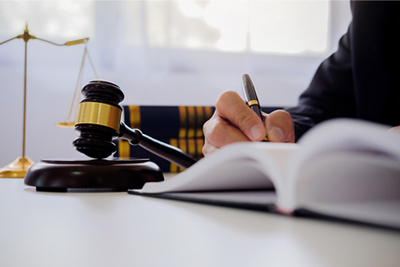The Supreme Court stands out to be at the apex of the pyramid of the Courts in India. It is the Highest Court of Appeal in India. It has a variety of jurisdictions under its ambit. the Supreme Court is considered to be the highest court of appeal and no appeal lies against the order or the judgment passed by the Supreme Court, there exists an option to review. This article discusses the appeal mechanism before the Apex Court.

The Supreme Court stands out to be at the apex of the pyramid of the Courts in India. It is the Highest Court of Appeal in India. Apart from having the appellate jurisdiction of the Honorable Court, it also acts as a guardian of the Constitution of India.
The following are the Jurisdictions of the Supreme Court:
The High Court certifies that the appeals to be made to the Supreme Court by way of granting the certificate under Article 132(1), 133(1) or 134 of the Constitution with respect to any judgment, decree or final order of all cases of the High Court involving the question of law.
Appellate Jurisdiction of the Supreme Court is categorized under the following heads:
If the High Court grants the certificate to decide the question of law as to the interpretation of the constitution under Article 132(1), then in that case appeal is made to the Supreme Court.
In accordance with the Article 133 of the Constitution of India, if there is any substantial question of law or it is wrongly decided and it needs to be decided by the Court. Upon such cases, the High Court grants the certificate to make appeals to the Supreme Court. The appeal can only be made within 60 days from the grant of certificate of the High Court.
In accordance with Article 134 of the Constitution, The Supreme Court has the power to hear the Criminal Matters in cases where the High Court grants Certificate or without Certificate:
When the High Court has reversed the order of acquittal of the accused person and punished with death sentence or imprisonment for life or for the period of 10 years or more;
When the High Court has withdrawn from before itself any case from any subordinate court and has convicted the accused person and sentenced him to death in the trial; With Certificate, under Article 134 (c) of the Constitution:
If the particular case is fit for the appeal to the Supreme Court of India.
The Supreme Court has the discretionary power to decide the case and the Court enjoys the residual power which is decided outside the purview of ordinary law given under Article 136 of the Constitution from any judgment, decree, sentence or order passed or made by any Court or Tribunal of India.
The SLP is governed under the rules mentioned in Order XVI of the Supreme Court Rules 1996 under either which the SLP is filed upon refusing the Certificate of fitness by the High Court or when there is a need to interfere by the Supreme Court to give Justice.
The Limitation period is of 90 days from the date of judgment or decree passed by the High Court. In case where the High Court has refused to grant the certificate against the order of the High Court, the limitation period is 60 days.
Though, the Supreme Court is considered to be the highest court of appeal and no appeal lies against the order or the judgment passed by the Supreme Court, there exists an option to review its own judgment within 30 days from the date of judgment on the grounds on which the review is sought.
Copyright 2024 – Helpline Law – HLL001